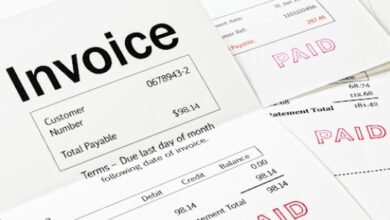Bulk Sports Balls And Their Importance In The Manufacturing Industry

In the manufacturing sector, bulk sports balls play a crucial role in supplying sports equipment on a large scale. Whether for schools, sports clubs, retailers, or event organizers, the demand for quality sports balls in bulk is ever-growing. This article explores the significance of bulk sports balls, the manufacturing process, benefits of buying in bulk, and factors to consider when sourcing these products.
Understanding Bulk Sports Balls
Bulk sports balls refer to large quantities of balls produced and sold together, typically for commercial or institutional use. These balls can be of different types, such as footballs, basketballs, volleyballs, or cricket balls, depending on the needs of the buyers.
Buying in bulk allows organizations to stock enough equipment to meet the demands of training sessions, tournaments, and recreational activities. For manufacturers, bulk orders mean consistent production schedules and streamlined operations.
See Also: SAILING YACHT EXPERIENCE AND ADVANTAGES
Manufacturing Process of Sports Balls in Bulk
Producing bulk sports balls requires an efficient and well-coordinated manufacturing process. The process generally includes the following stages:
Raw Material Selection
The choice of materials greatly affects the quality of the sports balls. Factories sourcing raw materials in bulk must ensure consistency to maintain product standards across large orders.
Design and Molding
Each type of sports ball has specific design requirements. The molds used in production shape the balls and define their size, weight, and texture.
Assembly and Stitching
Depending on the ball type, stitching or bonding panels together is an essential step. Automated machinery often handles this stage when producing in bulk to speed up the process and maintain uniformity.
Quality Assurance
When manufacturing bulk sports balls quality control is vital to check for defects, size accuracy, and performance characteristics. This ensures that buyers receive products that meet or exceed expectations.
Advantages of Purchasing Bulk Sports Balls
Buying sports balls in bulk offers several advantages for businesses and organizations:
Cost Efficiency
Bulk purchasing usually comes with discounts, reducing the overall cost per unit compared to buying individually. This is especially beneficial for schools, sports clubs, and retailers operating on tight budgets.
Inventory Management
Maintaining an ample stock of sports balls helps avoid shortages during peak sports seasons or large events, ensuring uninterrupted training and competitions.
Consistent Quality
Bulk orders often come from the same production batch, which means the products are more uniform in quality and appearance.
Customization Options
Many manufacturers offer customization for bulk orders, allowing clients to add logos, brand names, or specific color schemes to their sports balls.
Factors to Consider When Sourcing Bulk Sports Balls
Purchasing bulk sports balls is a significant investment, so it is important to consider key factors before making a decision:
Supplier Reliability
Choose a supplier or manufacturer with a solid reputation for delivering quality products on time. Reliable suppliers often provide certifications and sample products to demonstrate their standards.
Material Quality
Ensure that the balls are made from durable materials suited for their intended use. For instance, outdoor balls should withstand rough surfaces and weather conditions, while indoor balls require softer textures.
Compliance with Standards
Check if the sports balls meet industry standards set by governing bodies such as FIFA, FIBA, or other relevant organizations. Compliance ensures that the balls are suitable for official matches.
After-Sales Support
Good suppliers provide warranties and support services in case of defects or issues with the bulk order.
Environmental Considerations in Bulk Sports Ball Production
Sustainability is becoming increasingly important in manufacturing. Some manufacturers now focus on producing bulk sports balls using eco-friendly materials and processes. This not only reduces environmental impact but also appeals to environmentally conscious buyers.
Recycling programs, reduced packaging, and the use of biodegradable materials are some ways factories contribute to greener manufacturing.
Challenges in Manufacturing Bulk Sports Balls
Producing sports balls in large quantities comes with its challenges:
Maintaining Quality Consistency
Ensuring that every ball in a bulk order meets quality standards requires rigorous quality control processes and skilled personnel.
Meeting Delivery Deadlines
Handling large orders means factories must optimize production schedules to meet client deadlines without compromising quality.
Raw Material Costs
Fluctuating prices of raw materials can affect production costs, which may impact pricing for bulk orders.
The Future of Bulk Sports Ball Manufacturing
With advances in technology, the production of bulk sports balls is evolving. Automation, improved materials, and innovative design techniques are helping manufacturers produce higher quality products faster and at lower costs.
Additionally, integration of smart technology into sports balls, such as embedded sensors to track performance data, is an emerging trend that may soon become a standard feature.
Conclusion
Bulk sports balls are essential in the sports manufacturing industry, catering to the needs of various institutions, retailers, and sports enthusiasts. Efficient production, cost benefits, and the ability to customize products make bulk purchasing an attractive option for many.
When sourcing bulk sports balls, it is important to consider supplier reliability, material quality, compliance with standards, and environmental impact. By choosing the right manufacturer, buyers can ensure a steady supply of quality sports equipment that supports athletic performance and enjoyment.




